Is the future of food 'reducetarian'?
Cutting down on meat and dairy is increasingly accepted as a healthier, kinder and more environmentally sound way of eating. Jessica Brown asks: could a food-based revolution to rival the anti-plastics movement be on the horizon?
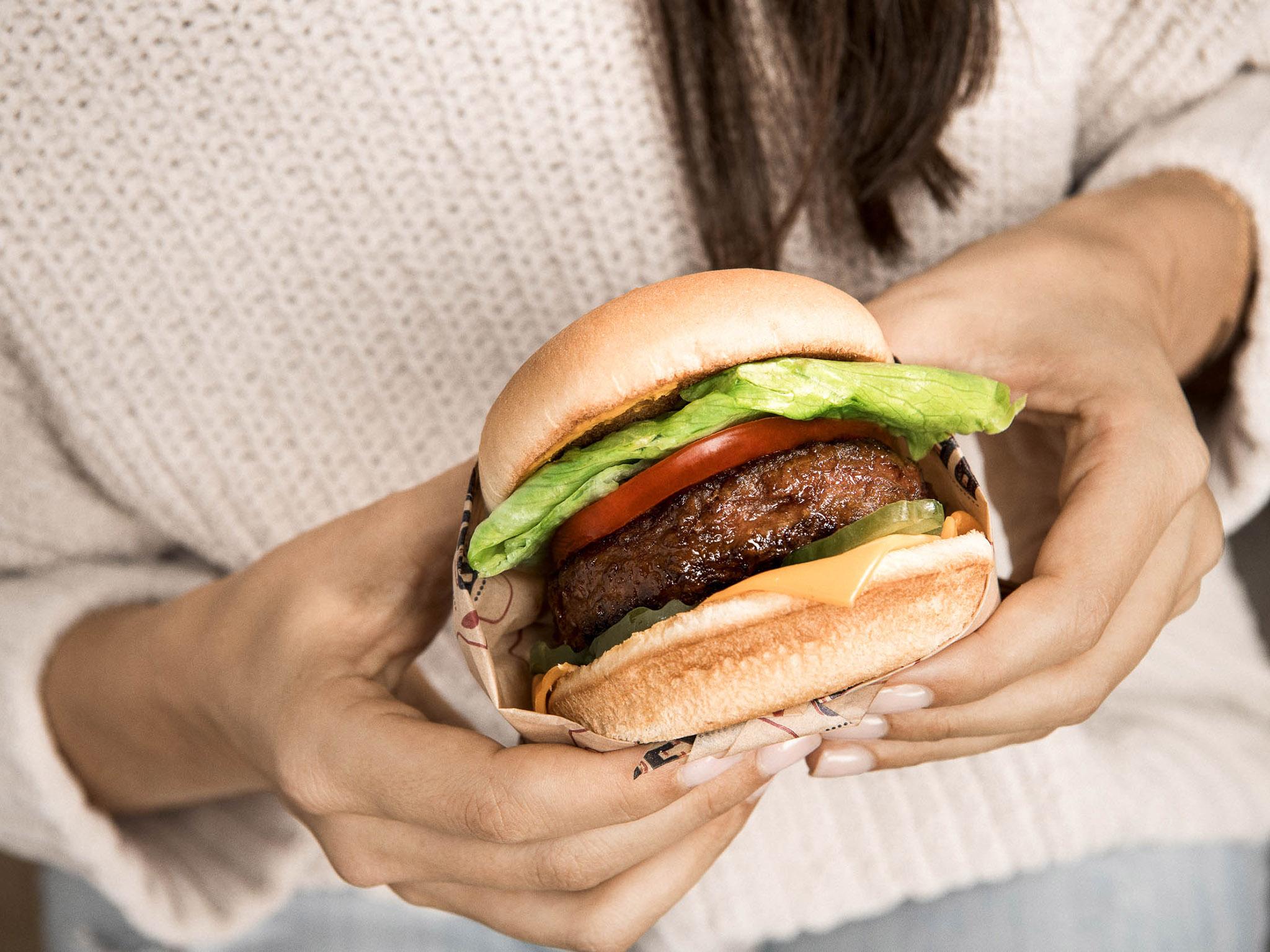
Your support helps us to tell the story
From reproductive rights to climate change to Big Tech, The Independent is on the ground when the story is developing. Whether it's investigating the financials of Elon Musk's pro-Trump PAC or producing our latest documentary, 'The A Word', which shines a light on the American women fighting for reproductive rights, we know how important it is to parse out the facts from the messaging.
At such a critical moment in US history, we need reporters on the ground. Your donation allows us to keep sending journalists to speak to both sides of the story.
The Independent is trusted by Americans across the entire political spectrum. And unlike many other quality news outlets, we choose not to lock Americans out of our reporting and analysis with paywalls. We believe quality journalism should be available to everyone, paid for by those who can afford it.
Your support makes all the difference.“I don’t want to talk about food justice anymore, I want to do food justice. After we leave here, what are we going to do? We’ve had a talk about food injustice, we’ve ticked the box of diversity, but now what? Let’s do what we’re talking about.”
Keith Tucker, the founder of non-profit Hip Hop is Green, an initiative that introduces young people to plant-based food and hip-hop artists talking about health and food justice, is arguing, during a panel discussion on food justice, that this should be the last time people talk about food justice.
He’s speaking to a room full of people as part of the second annual conference of the Reducetarian Foundation, a non-profit that helps start conversations about eating fewer animal products. And his words are very on-brand, since this year’s theme for the conference is action. But first, there were a lot of discussions to be had on panels and among the audience – one made up of doctors and scientists as well as representatives from both international organisations like Quorn and Greenpeace, and local restaurants, startups and social enterprises.
The benefits of cutting down on animal produce are clear – reduced risk of diabetes, heart disease and cancer, dramatically reducing greenhouse gas emissions and eradicating animal suffering. Two days before Tucker’s pledge, founder of the Reducetarian Foundation Brain Kateman kicked off the three-day conference with an ambitious aim.
“Let’s relegate factory farming to where it belongs: in the dustbin of history,” he tells the room.
But exactly how to drive this change is still being untangled; not everyone is quite at the mic-drop heights of Tucker.
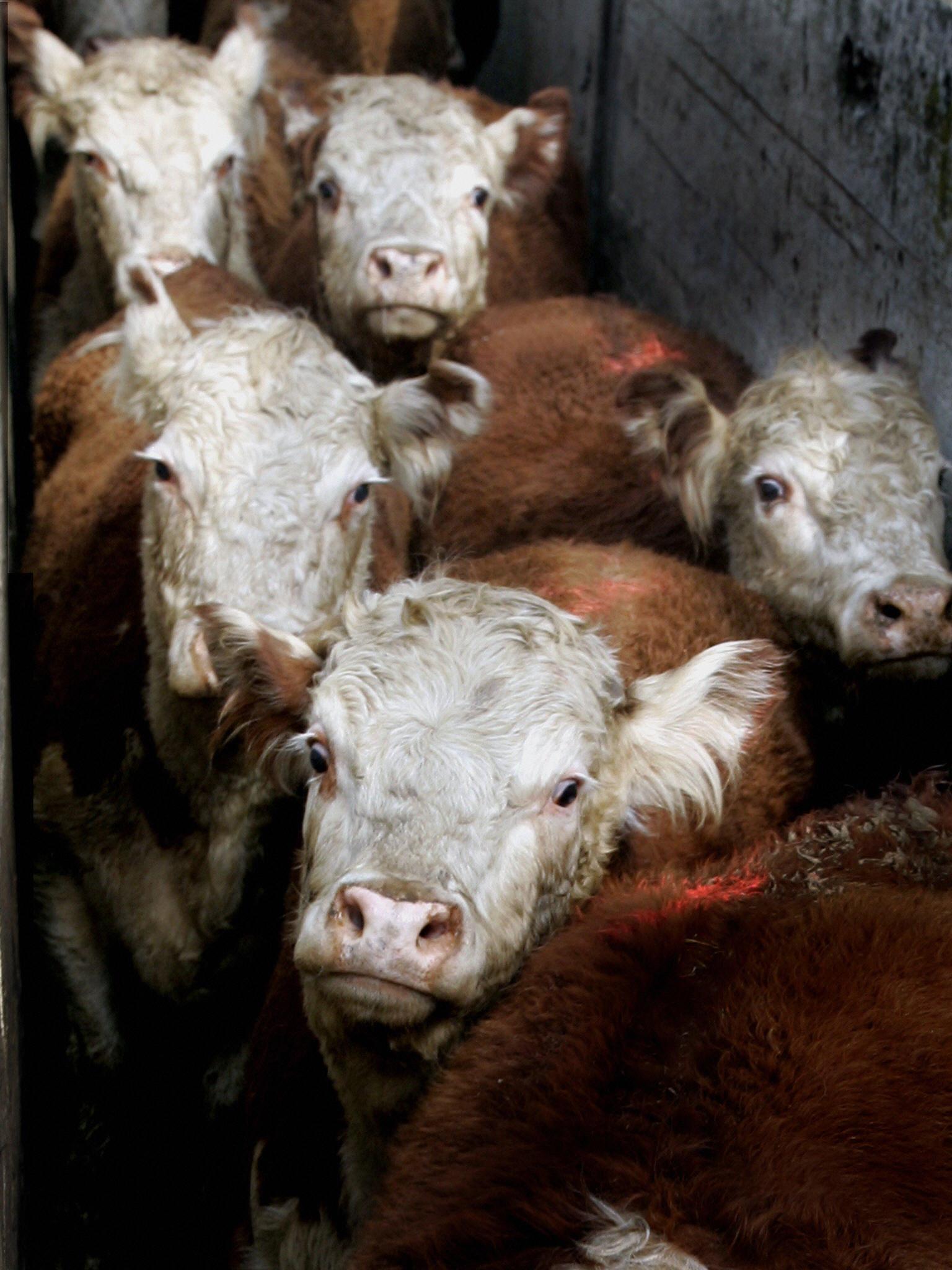
The conference started and ended with science’s role in blurring the lines between meat and plant-based alternatives, with a shared goal of keeping the animal out of the equation. Ethan Brown, founder of Beyond Meat and the famous vegan Beyond Burger making ripples across the Atlantic, argued that the Beyond Burger is meat.
“Meat isn’t a mystery, we know its composition. You can think of meat in terms of its origin or its composition. We focus on its composition, on making meat from plants.”
He explains that he positioned the company in LA to be close to good universities, and his plan seems to have worked.
“We have some of the brightest scientists in the world working for us,” Brown says.
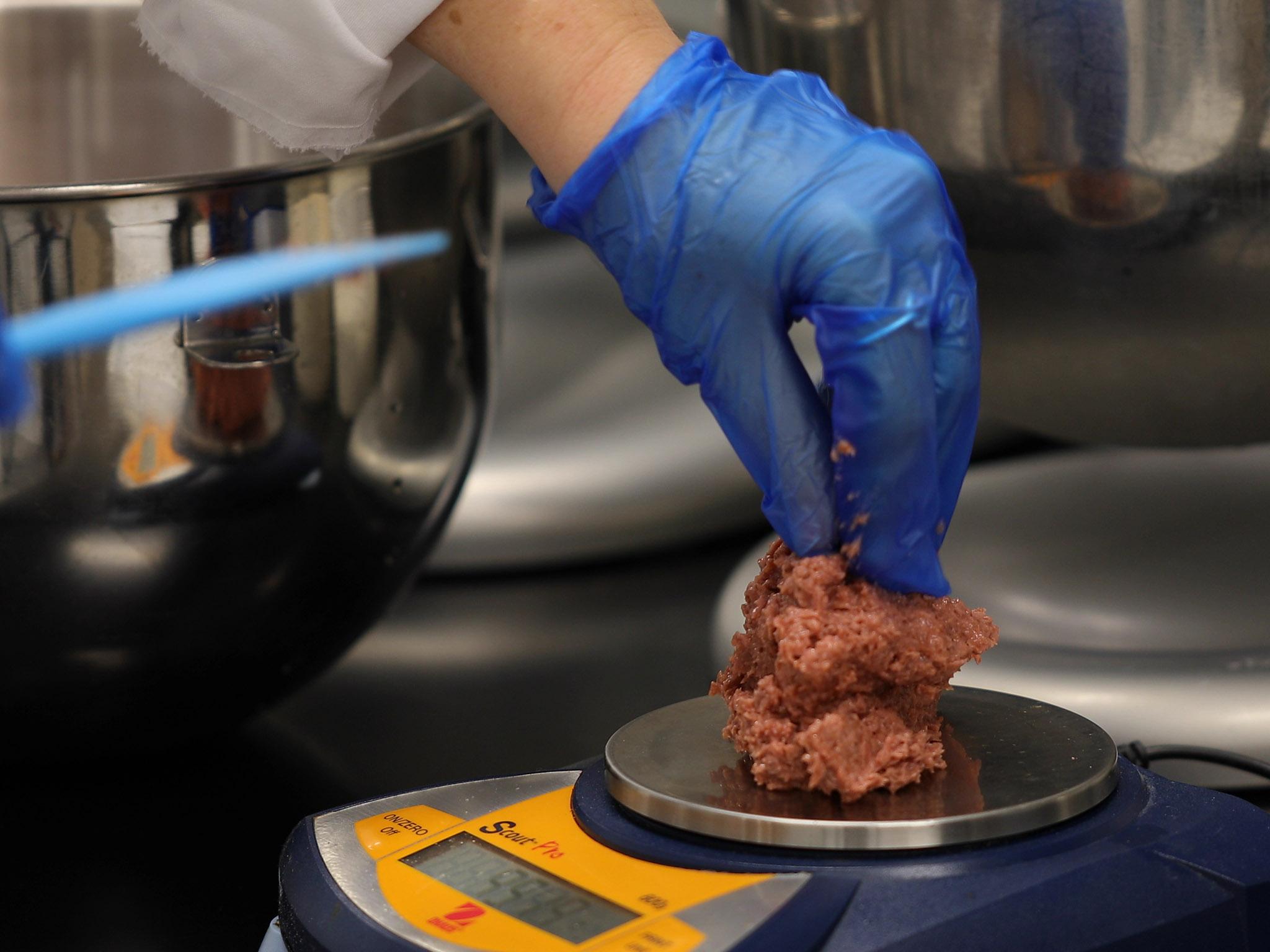
With the brains behind him, he says there’s no material obstacle stopping the plant-based meat market growing further. But Brown isn’t in competition with meat; he sees this as an opportunity for farmers, with whom he’s spending more and more time, figuring out how they can work together to outpace animal agriculture, using less land and making more money.
While Brown has his sights set on world domination, the world of cellular meat – growing meat in labs from a single animal cell – is a few years behind, and panellists estimated it will be around three years before anything comes to the market.
In the meantime, the rest of those behind the reducetarian movement have highlighted the other major roadblocks.
Medicine, for example, has a long way to go before it catches up to the consensus around plant-based diet’s role in disease prevention, according to leading cardiologists Dr Kim Williams, of Rush University medical centre in Chicago, and Dr Robert Ostfeld, director at Montefiore medical centre and professor at the Albert Einstein College of Medicine in New York.
Both Williams and Ostfeld lament the conflicting messages given to heart patients, who are served animal produce during their stay.

“It’s a case of ‘have a burger with your bypass’,” Ostfeld says.
Williams explains how one patient with a heart arrhythmia disorder, which can’t be controlled or avoided by diet or lifestyle, found it very difficult to eat vegan when staying in hospital for a surgical procedure, and was forced to ask her friends to bring food in for her. A doctor explained to Williams afterwards, “None of your vegan patients are ever sick”.
Williams also argued that doctors have a long way to go to understand how to ignite behavioural changes in patients, in their efforts to better convince patients to eat a more plant-based diet.
People came to the conference from the UK, Europe and beyond, and many of the conversations, including Tucker’s panel on food injustice, focused on LA-based issues that could be applied to other places around the world. For example, food deserts – large areas in towns and cities where fresh fruit and vegetables aren’t available locally – and lack of education around food. Tucker, whose work involves him speaking at events, says he’s asked children where potatoes come from and received McDonald’s as an answer.
Olympia Auset, the founder of SÜPRMARKT LA, a service bringing low-cost, organic food to low-income communities in the area, says people living in food deserts would have to travel to another side of town to get ingredients for a salad.
“What are the chances when there’s fast food all around you?” she asks.
Aside from accessibility, the panel agreed that ethnic minority communities, especially children, need to be educated by people they can relate to, in ways they can relate to.
“When a doctor says to eat more fruit and vegetables, it never works. It’s about giving messages in ways they’re excited about,” says Tucker, whose organisation educates young people on living healthily. He argues that hip-hop is a huge influence for young people and that moving hip-hop in a green direction has the potential to cause a global shift.
One issue raised countless times over the weekend was the inescapable assumption that veganism is predominantly for the white middle class, but the panel widely disagreed. While she argued there are many vegans among BAME communities, Naijha Wright-Brown, co-owner of vegan soul food restaurant The Land of Kush, warned that animal produce can be a strong component of people’s culture, often akin to religion – for example, families coming together to eat meals traditional to their roots. She says “baby steps” are the best approach to getting people to switch to plant-based diets.
Kateman echoes this sentiment and explains how the reducetarian label was borne out of a need to have a word to describe someone striving towards a goal of eating less and less animal produce, rather than the stagnancy implied with being a part-time vegetarian, for example.
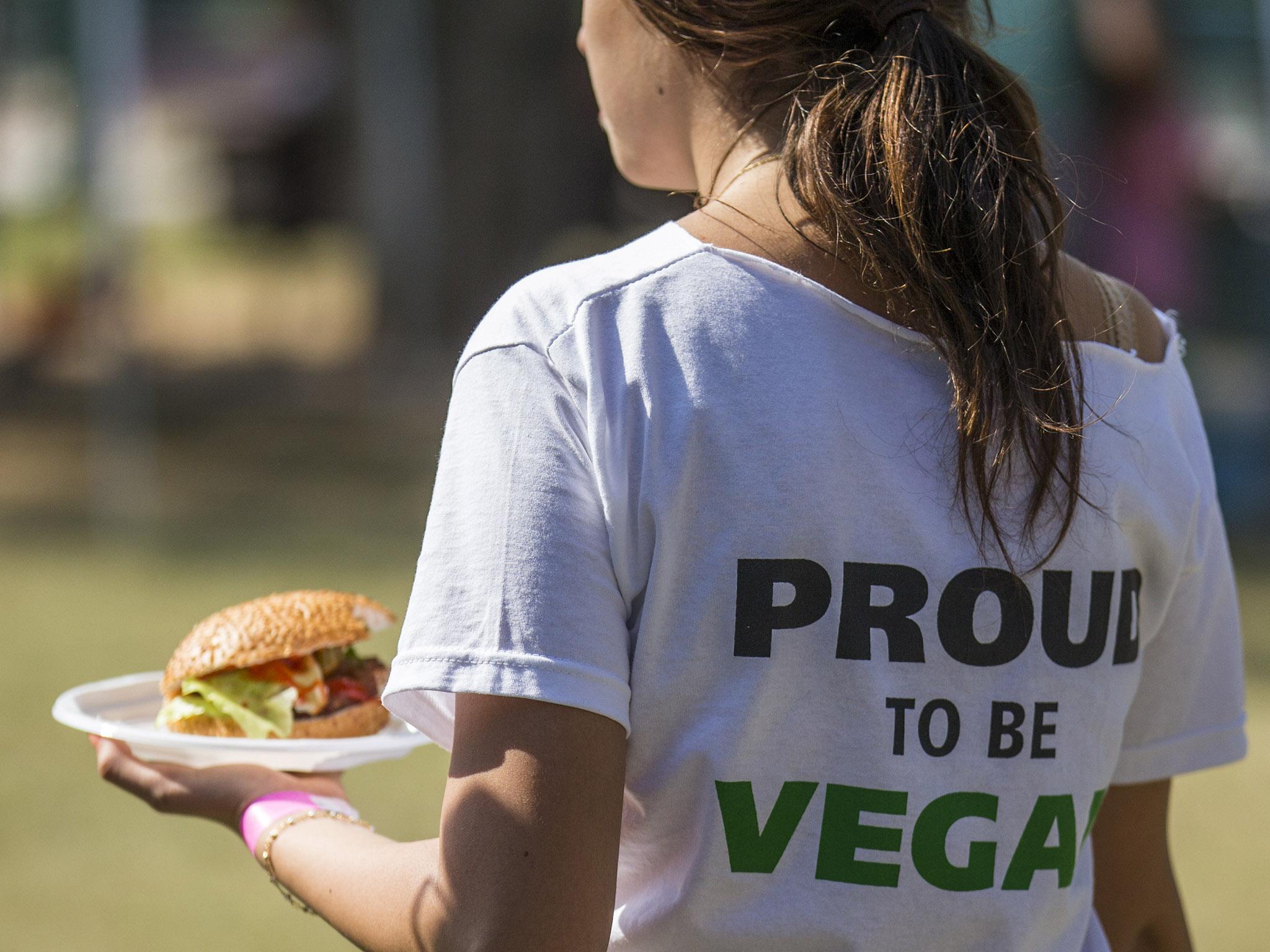
“I know lots of vegans and vegetarians and they don’t mean perfection, they mean doing the best they can. Incremental change is worthy of celebration, and those who ease into a plant-based diet last longer in the long term,” he says.
He explains that it’s easy to fall into the trap of philosophising among those eating a plant-based diet, but that everyone, despite their different motivations for going plant-based, is on the same team.
He also highlights a need to educate more people that a vegan diet isn’t just for vegans – a sentiment which seems to be gaining ground with vegan restaurants choosing to not use the V-word in their branding in an attempt to bring plant-based eating to the masses.
Greg Brown, co-owner The Land of Kush – which was voted “best restaurant” last year by the Baltimore City Paper – explains how he prioritised making both vegans and non-vegans comfortable in his restaurant.
“We’re getting people in who haven’t even heard of veganism, it just happens to be vegan,” he says.
Matthew Kenney, founder of Matthew Kenney Cuisine, says that while his restaurant is 100 per cent vegan, this isn’t stated anywhere on the restaurant’s website, and neither does fellow panellist Jocelyn Ramirez’s restaurant Todo Verde.
Normalising vegan food in this way is crucial to global change, argues Tim Finnigan, chief scientific adviser at Quorn. He says it took the vegetarian food brand 15 years to grow into 17 countries, but that the movement doesn’t have the luxury of another 15.
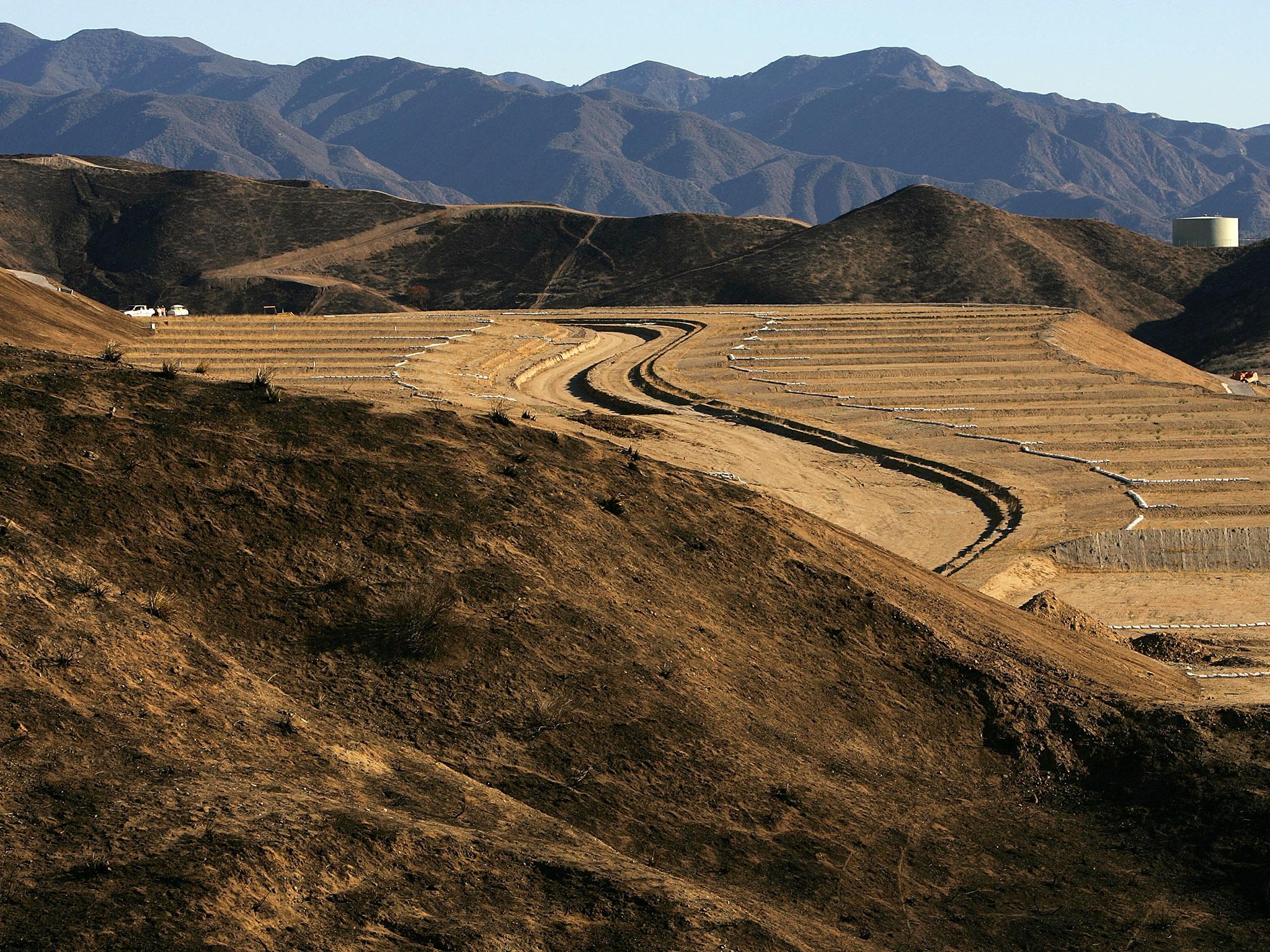
“We’ve moved from choice to societal need – we’ve left this mess for our kids to clean up,” he says. The way to forward plant-based eating, he argues, is for the plant-based diet, alongside Quorn’s products, derived from fungus, to become the “new normal”. And there was consensus that becoming the new normal will involve dramatic change.
Kateman says he was very concerned with what individuals were eating when he first started the Reducetarian Foundation.
“I’ve learnt over time that it’s institutional levels that are really important.”
Part of Beyond Burger’s Ethan Brown’s mission is getting the burger in schools across the US, and says his marketing is designed on the iconic “Got milk?” campaign from the 1990s, while Monique Mikhail, senior campaign strategist at Greenpeace, says the organisation has been perfecting its global communication.
“Messaging that blames the industry elicits a guilt reflex in people and backfires, people feel we’re blaming them, and it can make them feel disempowered and out of their hands,” she says.
What works best, Mikhail says, is a message that looks at the positive impacts of switching to a plant-based diet that also highlights the negative impacts on health and the environment. Ultimately, she adds, it’s about speaking to people’s emotions.
But Finnigan argues that real change must go beyond legislative and institutional change.
“I wonder if the complexities that bring people to a plant-based diet are reaching a tipping point,” he says.
“We had this with plastic recently, when an episode of Blue Planet showed a blue whale clutching her calf entangled in plastic. It captured everyone; all you hear about is plastic since then. People are galvanised.
“Whatever the equivalent is for the plant-based moment it isn’t far away – I don’t know what it is, but it feels like it’s coming. People talk about legislation, like a meat tax, but the only enduring change is the one we want for ourselves.”
Anyone who reads the bad press about vegans might assume bringing more than 550 people together from the US, UK and further afield would be a clashing of short-sighted evangelism, thanks to the movement’s aggressive fringes – but the weekend consisted of compelling talks grounded in patience towards those who eat animal produce.
There were calls to make veganism “sexier”, both despair and optimism, pleas to work together and a collective exasperation among those reminded of the global impact of factory farming in their everyday working lives.
“It should be quite easy, shouldn’t it, to eat less meat and more plants? But it’s quite complicated,” says Finnigan.
Join our commenting forum
Join thought-provoking conversations, follow other Independent readers and see their replies
Comments